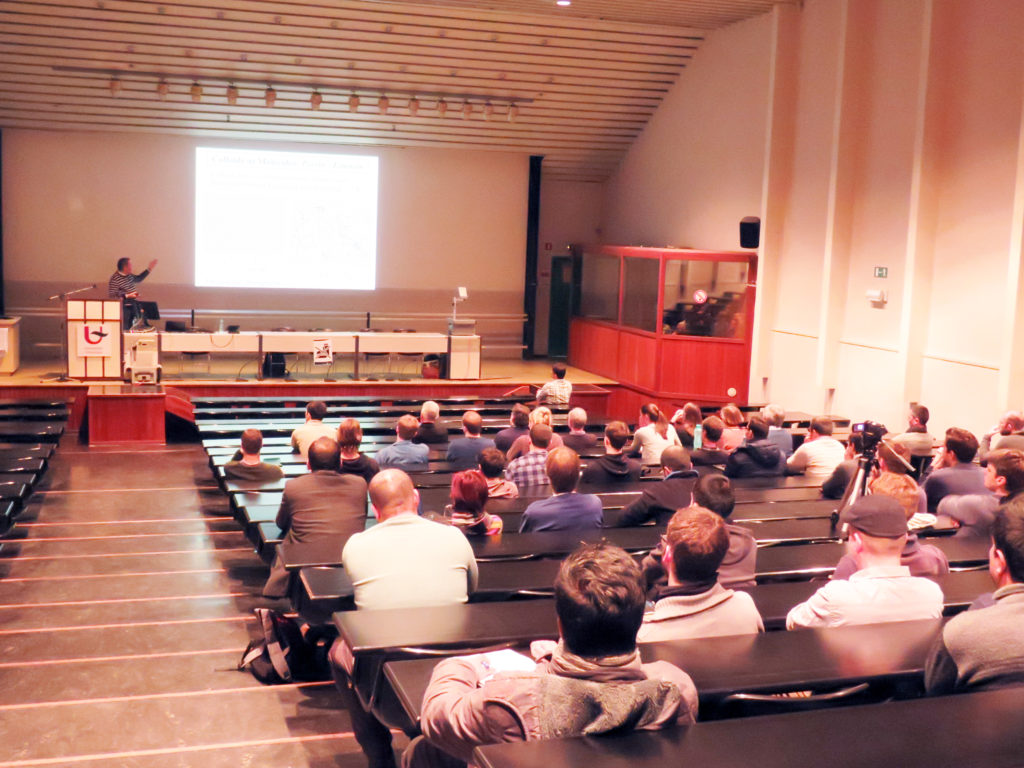On the 13th of December 2017, the Antwerp Young Minds section invited Professor Doctor Alfons van Blaaderen to give a colloquium at the University of Antwerp about his work on the self-assembly of nanoparticles. The main target audience were the students and researchers of the University of Antwerp physics department.
Professor dr. Alfons van Blaaderen is a professor at Utrecht University and the chair of the Soft Condensed Matter group of this university. His research focuses on the study of colloidal model systems and their self-assembly, in order to create, study and develop more advanced materials with special properties. Prof. van Blaaderen developed various new methods to manipulate the self-assembly of colloidal particles and was a pioneer in quantitative 3D real-space microscopic analysis of colloidal systems. In 2011, he was awarded the Peter Debye Prize by the Edmond Hustinx Foundation.
In his talk, professor van Blaaderen explained how self-assembly is a powerful way to create 3D colloidal crystals of metal or semiconductor nanoparticles, and showed us how this method can be used to tailor the properties of the resulting material. He first focused on self-assembly of particles into a spherical confinement, and then talked about how these results could be extended to particles with more complex shapes. The colloquium as a whole was a great occasion for students to be introduced to the field and applications of nanoparticles, while at the same time providing the researchers of our department with more profound insights about professor van Blaaderen’s experimental work.
The lecture was followed by a reception, where the audience members and speaker could enjoy a drink and a bite. This also presented our students and researchers with the opportunity to speak with professor van Blaaderen in an informal setting.
The colloquium received a good deal of positive comments and feedback from the students and researchers who attended it.

